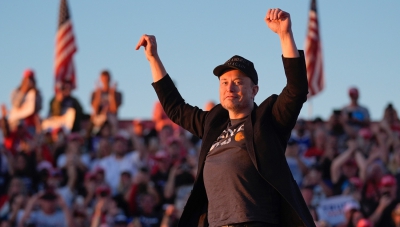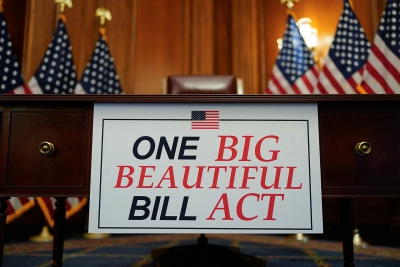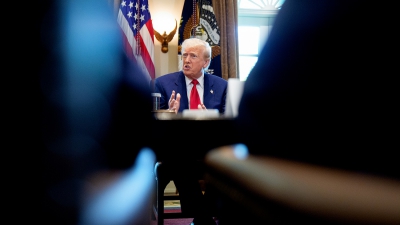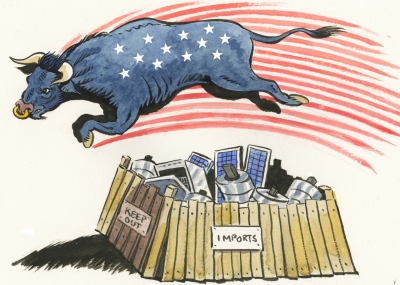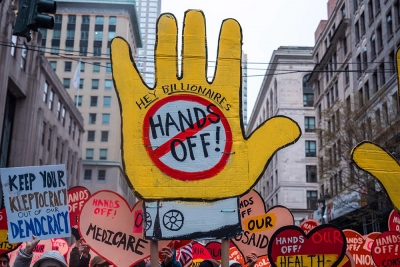The relationship between Afghanistan and neighboring countries is still a mess, but the Taliban interim government can't wait to show its courtesy to the new US President Trump.
The deputy foreign minister of the interim government said in a recent speech that Trump is a "firm and courageous" person and hopes to "be friends" with him.

He also told the audience that the enemy is not always the enemy. The Taliban fought against the Soviet Union in the past, but this does not affect the establishment of close diplomatic relations with Russia now.
By the same token, even after 20 years of fighting with the United States, after the Taliban took control of Kabul, the interim government was willing to promote the rebuilding of U.S.-Afghanistan relations. However, Biden did not give the Taliban this opportunity during his term. However, the situation may be different after Trump takes office.
A very important reason why the interim government had this idea is that the two sides had dealt with each other five years ago. In 2020, Trump signed the Doha Agreement with the Taliban and agreed to withdraw US troops from Afghanistan.

Later, Trump always talked about this incident and regarded it as his important political legacy. However, the agreement was signed during Trump’s term, and implementation fell to the Biden administration.
As for what kind of chaos it caused, there is no need to go into details here. Later, this became an excuse for Trump to attack the Biden administration, saying that the agreement was successful, but its implementation was poor, which directly caused the image of the United States in Afghanistan to plummet, called "the most embarrassing moment in history." Trump also promised that after taking office, he would hold accountable for the withdrawal of troops from Afghanistan.
The withdrawal of U.S. troops from Afghanistan is not a sudden impromptu feat by Trump, but has been foreshadowed since the Obama administration, because the U.S. military is already mired in the quagmire and has become another footnote in the "Graveyard of Empires." The withdrawal is a domestic common voice.
Therefore, this agreement, ostensibly Trump’s “political legacy,” is essentially a diplomatic relay that spanned three generations of U.S. presidents and lasted for more than ten years across party lines.
We all know what happened later. At the same time that the US military began to withdraw, the Taliban captured cities in Afghanistan and finally took control of Kabul to form an interim government.

According to the interim government's vision, the reestablishment of diplomatic relations between Afghanistan and the United States should be based on the "Doha Agreement."
The main content of the agreement is that the United States agrees to withdraw its troops from Afghanistan. In exchange, the Taliban promises that will not allow extremist organizations to appear on their territory.
As time goes by, Trump returns to the presidency again. Not only the interim government, but the international community is also curious about what role Trump will let the United States play in Afghanistan during his second term.
In Trump’s view, the part of the Afghan issue that troubles the United States has been “perfectly resolved” during his last term. Perhaps establishing communication channels with the interim government may not necessarily run counter to “America First”, but this does not mean It will be the direction that Trump focuses on.
The interim government needs to improve relations with the United States to pave the way for subsequent diplomatic recognition and continue negotiations with the United States on frozen Afghan assets.

But with Trump, there is no such urgency, but if the Taliban takes the initiative to show courtesy, he may not turn it away. After all, the two sides have successfully reached an agreement (the Doha Agreement).
However, times have changed, and the agreement of that year may not be applicable to the current situation in Afghanistan. What's more, the Taliban's original guarantee to the United States in the agreement was that it would not allow extremist organizations to emerge. This was actually a "replica" of the security commitments made to neighboring countries by the interim government when it came to power.
As for how well it is implemented, neighboring countries have a fair say in this. In addition, the interim government's selective counter-terrorism has long been no secret. All parties are well aware of the recent security situation in Afghanistan. The Taliban is now taking the initiative to talk about the Doha Agreement, which instead provides Trump with an opportunity to use the topic as an excuse.

In addition, Rubio, the Secretary of State nominated by Trump, is not only anti-China, but also very hostile to the Taliban. He believes that Afghanistan under the interim government will threaten the security interests of US partners in Central Asia and the Middle East. If Rubio insists on adding the Taliban to the list of terrorist organizations, the interim government's diplomatic efforts will be over before they even begin.
On how to deal with the United States under Trump, the interim government began to draw on past ideas and summarize some rules based on its own experience in governing in recent years. At least judging from the statements of their deputy foreign minister, the Taliban has fully realized that, There are no permanent enemies or friends, only permanent interests.
Do the Taliban and the Trump administration have overlapping interests? Is there room for bargaining? These can only be revealed after Trump officially takes office.
Although improving relations with the United States may not go as smoothly as the Taliban expected, just establishing a stable communication channel in advance does not seem to do them any harm. And Trump is more interested in negotiations and deals than Biden.

After the Taliban has shown its courtesy, it depends on how Trump responds. The deputy foreign minister of the interim government said that the new US president is "firm and courageous", which can be regarded as the right medicine. At least this rhetoric will be very useful to Trump.
Nowadays, the Taliban's foundation is unstable, and its relations with neighboring countries have not been sorted out. They are busy rebuilding US-Afghan relations. In the end, they are likely to focus on one and lose the other, and please neither side.




